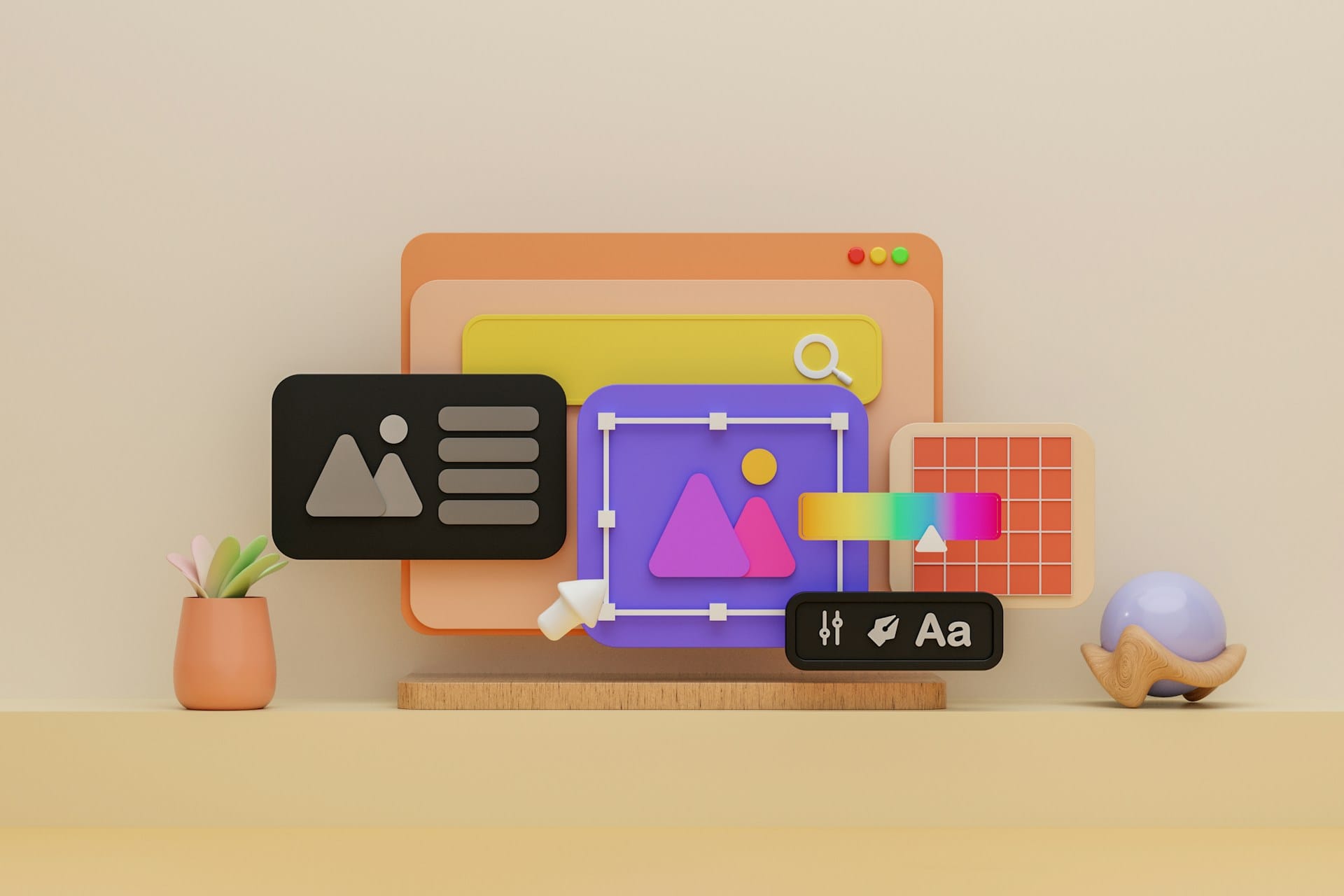Figma has launched Design System AI, a revolutionary feature that analyzes existing designs and automatically generates comprehensive design systems complete with components, design tokens, and documentation.
How It Works
The AI analyzes your design files and identifies patterns across:
Visual Elements
- Color palettes and semantic usage
- Typography scales and hierarchies
- Spacing and layout patterns
- Border radius and shadow styles
Component Patterns
- Button variations and states
- Form input types and styles
- Card layouts and content structures
- Navigation and menu patterns
The Generation Process
Step 1: Analysis
Upload your design files or select existing Figma projects. The AI scans for:
Analyzing 47 design files...
✓ Found 12 unique color values
✓ Identified 8 typography styles
✓ Detected 23 component variations
✓ Discovered 15 spacing patternsStep 2: Pattern Recognition
The AI groups similar elements and suggests semantic naming:
-
primary-500instead of #3B82F6 heading-largeinstead of 32px Boldspacing-mdinstead of 16pxbutton-primarywith hover and disabled states
Step 3: Component Creation
Automatically generates Figma components with:
- All identified variants and states
- Proper auto-layout configuration
- Semantic naming conventions
- Component descriptions and usage notes
Generated Design System Structure:
Design Tokens
- Colors (primitive and semantic)
- Typography (font families, sizes, weights)
- Spacing (margin, padding, gaps)
- Borders (radius, width, style)
- Shadows and effects
Components
- Buttons (primary, secondary, ghost, etc.)
- Form controls (inputs, selects, checkboxes)
- Cards and containers
- Navigation elements
- Icons and illustrations
Documentation
- Component usage guidelines
- Do's and don'ts examples
- Accessibility considerations
- Implementation notes for developers
Real-World Results
Beta testers report impressive time savings:
Before Design System AI:
- Manual audit: 2-3 weeks
- Component creation: 1-2 weeks
- Documentation: 1 week
- Total: 4-6 weeks
After Design System AI:
- AI analysis: 10 minutes
- Review and refinement: 2-3 hours
- Custom adjustments: 1-2 days
- Total: 2-3 days
Advanced Features
Smart Naming Suggestions
The AI suggests semantic names based on usage context:
Color Usage Analysis:
#FF4444 → Used for errors, warnings → "error-500"
#10B981 → Used for success states → "success-500"
#6366F1 → Used for primary actions → "primary-500"Accessibility Compliance
Automatically checks and flags:
- Color contrast ratios
- Text size recommendations
- Touch target minimum sizes
- Focus state requirements
Developer Handoff
Generates code snippets for popular frameworks:
/* CSS Custom Properties */
:root {
--color-primary-500: #6366F1;
--spacing-md: 16px;
--border-radius-lg: 12px;
}
.button-primary {
background: var(--color-primary-500);
padding: var(--spacing-sm) var(--spacing-md);
border-radius: var(--border-radius-lg);
}// React Component
export const Button = ({ variant = 'primary', size = 'md', children }) => (
<button className={`btn btn-${variant} btn-${size}`}>
{children}
</button>
);Customization and Refinement
The AI provides a starting point, but designers maintain full control:
Token Refinement
- Adjust color scales and semantic mappings
- Modify typography hierarchies
- Fine-tune spacing systems
- Add custom token categories
Component Enhancement
- Add missing variants or states
- Customize auto-layout behavior
- Include additional properties
- Create component compositions
Documentation Editing
- Add team-specific guidelines
- Include brand voice and tone
- Customize usage examples
- Add implementation notes
"Design System AI gave us a 90% complete design system in 10 minutes. We spent the remaining time adding our brand personality and team-specific guidelines rather than doing tedious manual work."
- Design Lead at TechStartup
Integration with Existing Workflows
Version Control
- Integrates with Figma's branching system
- Track changes and iterations
- Merge updates across team files
- Maintain design system history
Team Collaboration
- Share generated systems across teams
- Collaborative refinement process
- Comment and suggestion system
- Approval workflows for changes
Developer Tools
- Export to popular design token formats
- Generate Storybook documentation
- Create Figma-to-code mappings
- Sync with CSS frameworks
Design Tokens
- JSON (Design Tokens Community Group format)
- CSS Custom Properties
- SCSS/Sass variables
- JavaScript/TypeScript objects
- Tailwind CSS configuration
Documentation
- Markdown files
- Storybook stories
- Notion pages
- Confluence documentation
- Custom HTML/CSS sites
Code Components
- React/TypeScript
- Vue.js
- Angular
- Web Components
- CSS-only versions






Comments